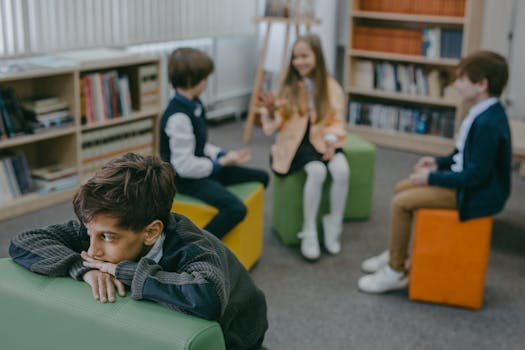Social-Emotional Learning: Beyond Academics
Social-Emotional Learning (SEL) has been gaining popularity in recent years as schools and educators recognize the importance of teaching skills beyond academics. While academic achievement is undoubtedly crucial, SEL focuses on developing key social and emotional skills that students need to thrive in school and in life. In this article, we will explore the concept of Social-Emotional Learning and why it is crucial to go beyond traditional academics to support the overall development of our students.
The Importance of Social-Emotional Learning
Traditionally, education has focused heavily on academic subjects such as math, science, and English. While these subjects are integral to a well-rounded education, they often neglect the development of critical social and emotional skills. As a result, we see high levels of stress, anxiety, and mental health issues among students, which ultimately affects their academic performance and overall well-being.
Social-Emotional Learning is a framework that aims to bridge this gap by providing students with the necessary skills to manage their emotions, build healthy relationships, and make responsible decisions. SEL encompasses five key competencies: self-awareness, self-management, social awareness, relationship skills, and responsible decision-making. By teaching these skills, we can help students develop into well-rounded individuals equipped to navigate the complexities of life.
The Benefits of SEL Beyond Academics
While the primary goal of education is to impart knowledge and academic skills, the benefits of SEL extend far beyond the classroom. Integrating SEL into the curriculum has shown to have a positive impact on students’ mental health, academic achievements, and overall well-being.
Improved Mental Health
Emotional intelligence is crucial to maintaining good mental health. By teaching students how to recognize, understand, and manage their emotions, SEL can promote self-awareness and help students build resilience. This, in turn, can decrease stress and improve overall mental health.
Enhanced Academic Performance
Research has shown that social and emotional skills are closely related to academic achievement. Not only do these skills help students manage stress and improve focus, but they also foster a positive classroom climate and enhance learning. When students feel calm, safe, and supported, they are more likely to engage in the learning process and perform better academically.
Positive Relationships
SEL teaches students how to communicate effectively, resolve conflicts, and collaborate with others. These skills are fundamental to building positive relationships with peers, teachers, and family members. By promoting a sense of belonging and connectedness, SEL can also prevent the development of negative behaviors such as bullying and aggression.
Preparation for the Real World
In today’s fast-paced and ever-changing world, it is essential to equip students with the skills they need to succeed in life. SEL teaches students critical skills such as problem-solving, decision-making, and empathy, which are crucial for success in the workplace and in society.
Implementing SEL in Schools
The implementation of SEL in schools can take various forms, such as incorporating SEL lessons into the curriculum or creating school-wide programs and initiatives. However, to be effective, SEL must be integrated into the school culture and supported by all stakeholders, including teachers, parents, and the community.
Teachers play a vital role in promoting SEL in the classroom. They can foster a supportive and inclusive environment, model positive behaviors, and incorporate SEL activities into their teaching. Parents can also support SEL by reinforcing the skills taught in the classroom and promoting a positive home environment where open communication and emotional expression are encouraged.
SEL and Virtual Learning
The current global pandemic has forced schools to adapt to virtual learning, making SEL more critical than ever. With students facing increased isolation and stress, virtual learning has made it even more challenging to address their social and emotional needs. Teachers must ensure that SEL remains a priority in the virtual classroom to support the well-being of their students.
Conclusion
Social-Emotional Learning goes beyond traditional academics, focusing on building the critical life skills that students need to thrive in school and in life. By implementing SEL in schools, we can promote better mental health, improve academic achievement, and develop well-rounded individuals equipped to navigate the complexities of the real world. As educators, it is our responsibility to support the overall development of our students, and SEL is a crucial step towards achieving this goal.










